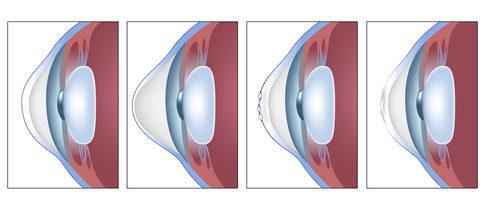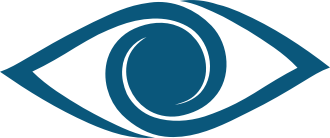
Keratoconus is an eye disease which involves the normally round cornea bulging and forming into a cone shape. This happens progressively and is due to a thinning cornea. The cone shape deflects light before it can reach the retina, resulting in distorted vision. Beverly Hills Institute of Ophthalmology is a leader in the treatment of Keratoconus and related eye diseases.
Symptoms
Symptoms include nearsightedness and the development of irregular astigmatism. Glare and light sensitivity are also things to look out for. Frequent changes in eyeglass prescription are common amongst those with keratoconus. Keratoconus can affect one or both eyes.
Causes
Research suggests that the thinning of the cornea that results in keratoconus could be the result of an enzyme imbalance within the cornea. This imbalance makes the cornea more susceptible to oxidative compounds which cause the cornea to bulge forward.
There is a genetic predisposition to weakening corneas, which explains why keratoconus often affects more than one member of the same family. If others in your family have keratoconus it is definitely something to watch out for.
Additionally, keratoconus is associated with excessive eye rubbing, poorly fitted contact lenses, overexposure to ultraviolet rays, and chronic eye irritation. Remember to always protect yourself and your children by wearing high grade UV rated sunglasses.
Treatments
- Corneal Crosslinking: This procedure strengthens corneal tissue through the use of UV activated B vitamins.
- Custom soft contact lenses: This treatment is for mild-to-moderate keratoconus and involves getting custom made contact lenses that are based on specific measurements of a person’s keratoconic eyes.
- Gas Permeable contact lenses: These lenses are placed over the cornea, replacing the irregular shape with one that does not deflect incoming light.
- Intacs: This treatment involves surgically positioned arc shaped inserts that reshape the front surface of the eye. The surgical procedure takes only about 10 minutes.
There are many additional treatments for this condition and it is best to schedule a visit with Dr. James Khodabakhsh or Dr. John Hofbauer at Beverly Hills Institute of Ophthalmology.

